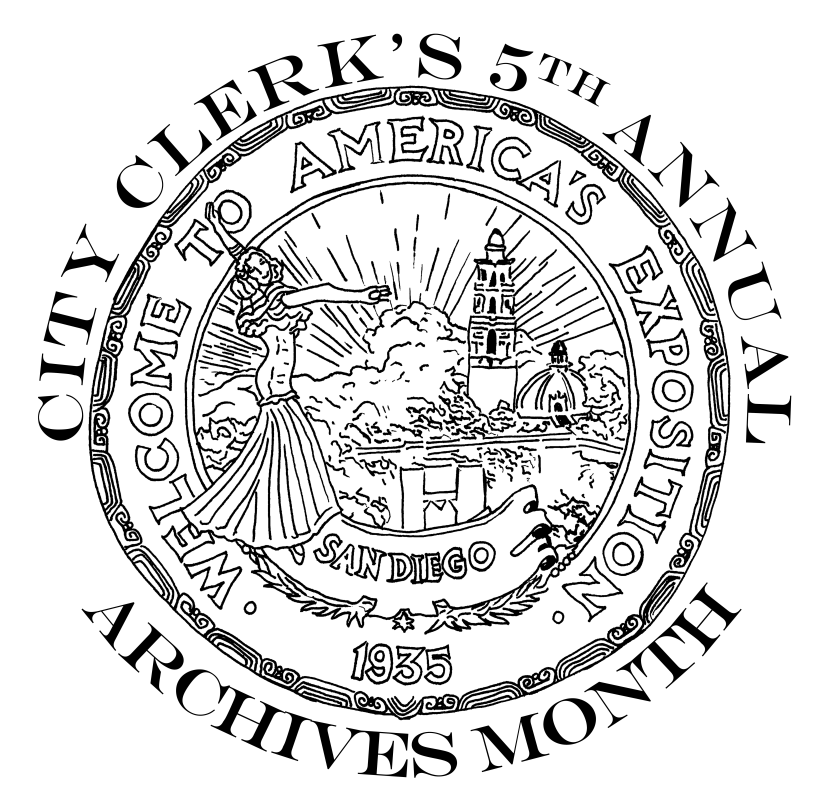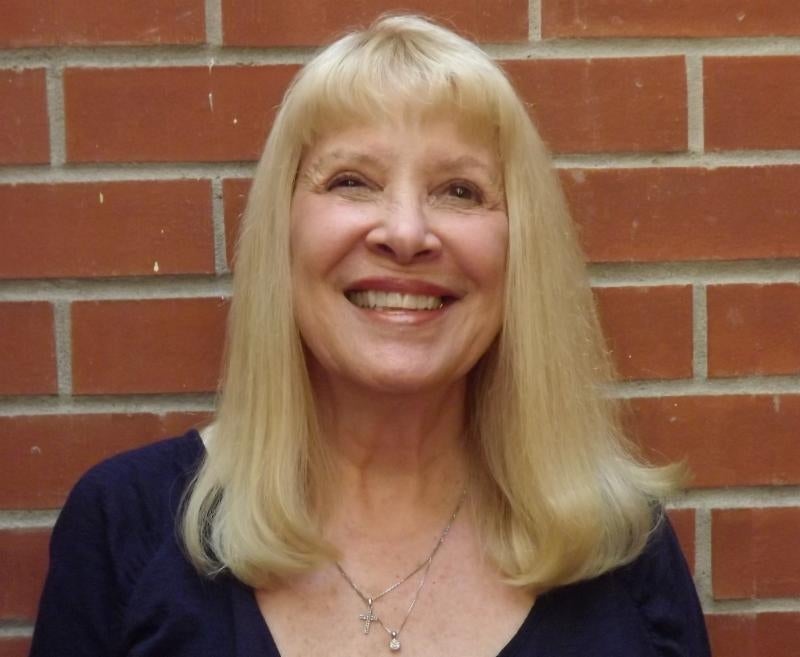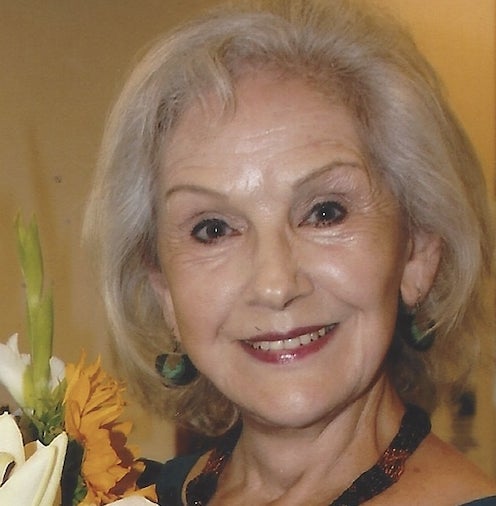5th Annual Archives Month Presents:
 The 1935-36 California Pacific International Exposition
The 1935-36 California Pacific International Exposition
View the Collection of documents on display for the Exhibit.
On-line Lectures
 Sandee Wilhoit
Sandee Wilhoit
Gaslamp Foundation
Sandee Wilhoit is a former high school and college teacher with a background in U.S. history, psychology and educational policy. She is the Historian and lead tour guide for the Gaslamp Quarter Historical Foundation, and a member of the Gaslamp Players, a historical reenactment troupe. Sandee writes a monthly column, “Gaslamp Landmarks,” for the Downtown News, and has been a featured speaker at the Congress of History, the San Diego Library, previous Annual Archivist’s Conferences and many other venues throughout San Diego. She has been featured in historical and paranormal videos for the Foundation, the City of San Diego, and other commercial institutions. Additionally, Sandee has been active in local and cross-border television and has acted as a historical consultant to several authors.
Sandee lives in the historic Gaslamp district in downtown San Diego.
Links to some of her work:
Writer for San Diego Downtown News:
https://sdnews.com/138-year-old-hotel-has-changed-hands-not-buildings/
Spanish Language interview with Sandee about the Ghosts of the Gaslamp:
The California Pacific International Exposition: Planning, Presenting and Posterity
The 1935 California Pacific Exposition was a product of the past 1915 Exposition; it was built on its remaining foundation and planned for the future within the current social and economic climate. It would, as well, entice its attendees to think boldly about a new, vigorous society based on science and American ingenuity. To ensure that all tastes were satisfied the new expo would also include a plethora of entertaining, and sometimes astounding, exhibits and events featuring carnival-like offerings, concerts by the Mormon Tabernacle Choir and even actors performing Shakespeare’s plays, as the Old Globe Theater opened simultaneously! There would be something for everyone!
From the Gaslamp to Balboa Park, this presentation will highlight San Diegans, working together, from planning through presentation, to produce a unique and colorful exposition that left a lasting legacy and paved the way for the future. It will track the 1935 Expo from idea to reality to present-day results, and perhaps give rise to ideas about a new exposition!
 Helen Ofield
Helen Ofield
Lemon Grove Historical Society
Helen Ofield is the former 19-year president of the Lemon Grove Historical Society. She now serves the board as historian. She spearheaded the saving of Lemon Grove's first church (built 1897) and its adaptive reuse as the Parsonage Museum of Lemon Grove, and saved the Tudor Revival H. Lee House (built 1928), now in adaptive reuse as Lemon Grove's cultural center. Her civic history, Images of America: Lemon Grove (Arcadia 2010) includes photographic content advised by Pete Smith. She is an award-winning writer-producer for national and local film and television, as well as for print and online news media, a former nine-year member of the San Diego County Historic Site Board, member of the Society of Professional Journalists, and a long-time historic preservationist in New York and California.
Where are the Great Cat Burglars
In Lemon Grove between the 1950s and 1960s, petty crime was frequently very funny and often committed by nitwits. This presentation provides examples of some of the funniest crimes in the little town with the Big Lemon. Even kids and dogs got into the act. No guns or knives, no smash-and-grab, no assaults on seniors, just boobs swiping muffins and getting caught by the dumpster.
The Mattoon Act
Everett Mattoon, it was intended to facilitate community development by allowing local authorities to create improvements through eminent domain and tax hikes (actually pyramid schemes). Mattoon, the nicest guy in the room, became horrified at what was done in his name. The act was repealed in 1933, but not before a public reeling from the 1929 crash was victimized twice.

